Anger over state of former department store
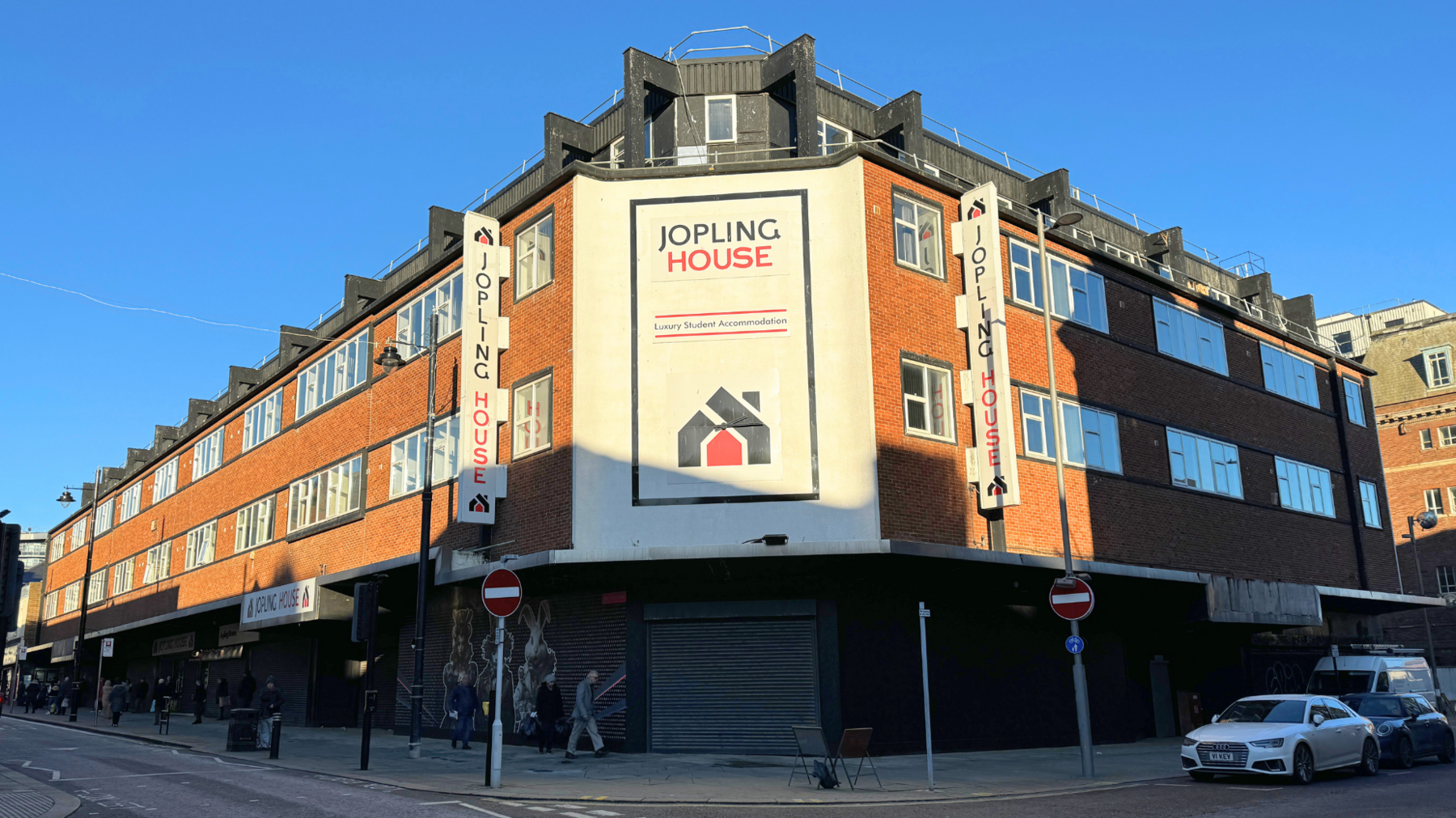
Sunderland City Council completed a compulsory purchase order of the former Joplings site last year
- Published
A former department store once dubbed the "Harrods of the North" has become an "eyesore" in need of urgent renovation, say locals.
Sunderland City Council bought Jopling House - used as student housing - last year, ending government plans to turn it into an asylum processing hub.
But opposition councillors and former workers said the building is "unwelcoming" and in a "disgusting" state.
The Labour-run council said "urgent" internal works had started and long-term plans were being drawn up.
The building was home to Joplings from the mid-1950s until its closure in 2010.
After laying vacant for several years it was reopened as student accommodation in 2018 by a private property developer.
The council completed a compulsory purchase order (CPO) in July after the developer had planned to sell the site for use by the Home Office.
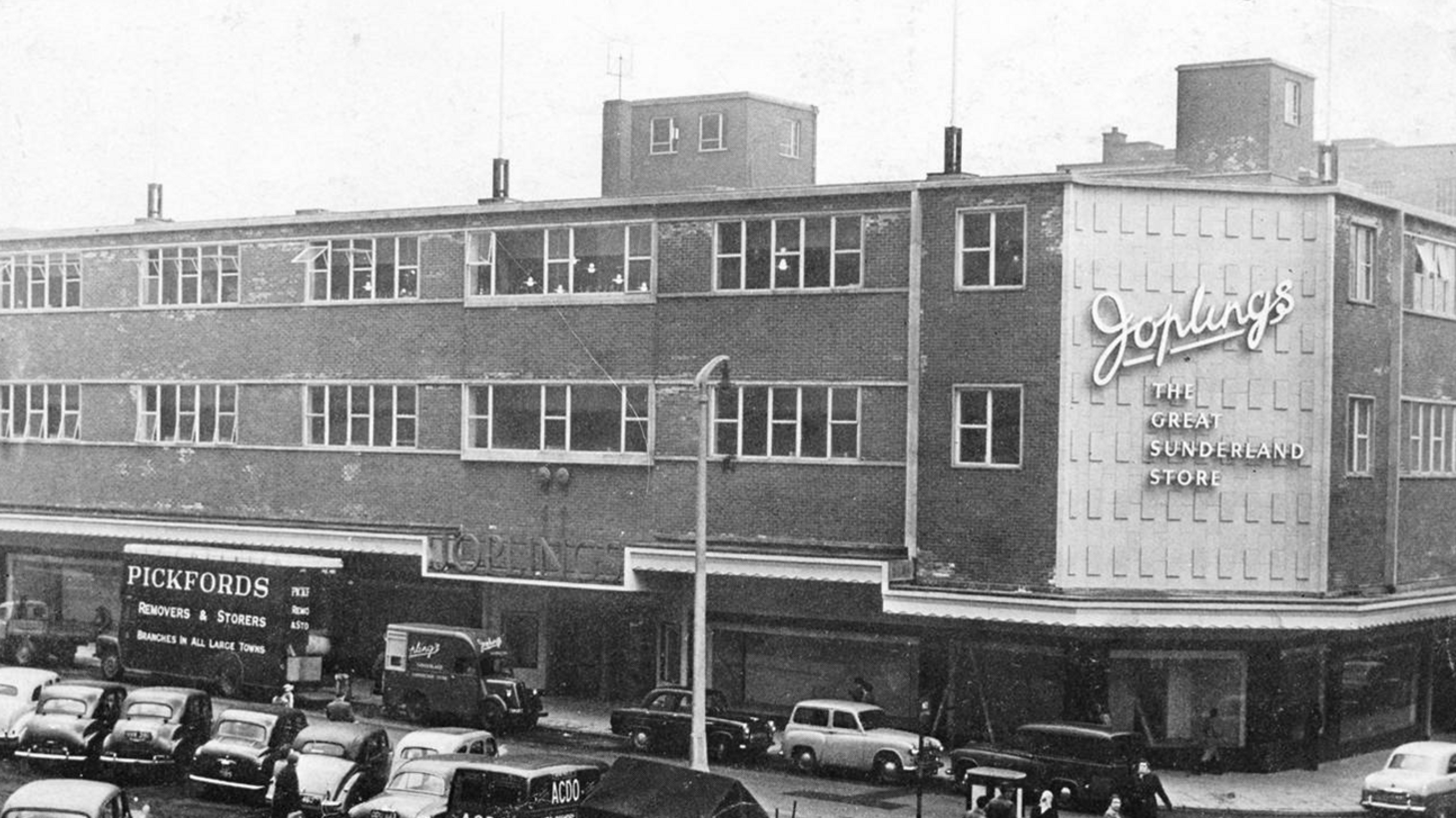
The department store was said to be home to Sunderland's first escalator
"It’s all boarded up," Councillor Antony Mullen, leader of Sunderland Conservatives, told the BBC.
"It doesn’t look welcoming or attractive and gives the sense of the town being a bit dead.
"It needs to be more vibrant, widened up to wider public and not just students. People see this as the beginning of a no-go area... the end of the city centre."
Last year, the council said, although it will remain as student accommodation, improvements would be made to bring some of the site back into retail use.
Meanwhile, work would be carried out on the upper floors and to its external fascia, which the council said had been left unfinished by the previous owner.
'Retailers suffering'
Mr Mullen said redevelopment would have a "massive impact on this full quarter of the city".
He added: "It won't just transform any big businesses moving into Joplings, it will help the smaller ones as well.
"Independent retailers over the road from Joplings are are suffering because of the atmosphere."
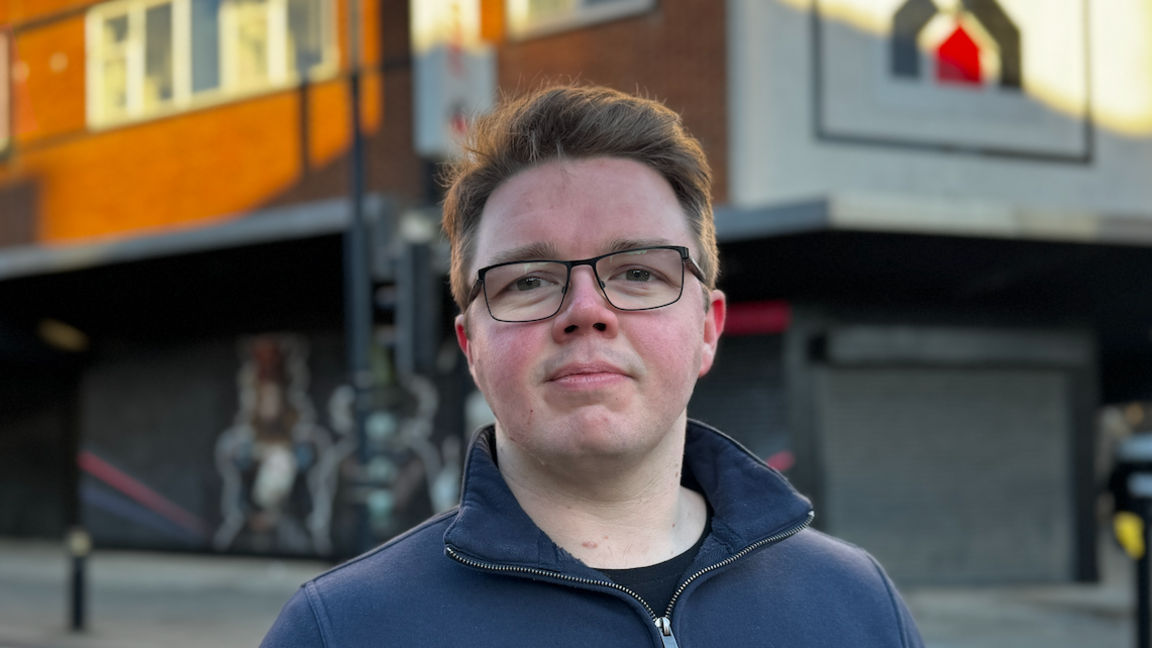
Antony Mullen, leader of Sunderland Conservatives, said the building is "unwelcoming"
When it opened in the 1950s, the store was home to the first escalator in the city, while it had its own physical currency, Joplings Money.
Alma O'Connor, who worked in its shoe department from 1962 aged 15, said she was saddened how the building's appearance had deteriorated.
The now, 76-year-old from Sunderland, said: "It was lovely at Christmas time and they had lots of exhibitions, always had something going on to keep the interest."
Another former employee, Ann Carrick who now lives in Crook, County Durham, added it "used to be lovely" at a time when "you had lots of stores back then."
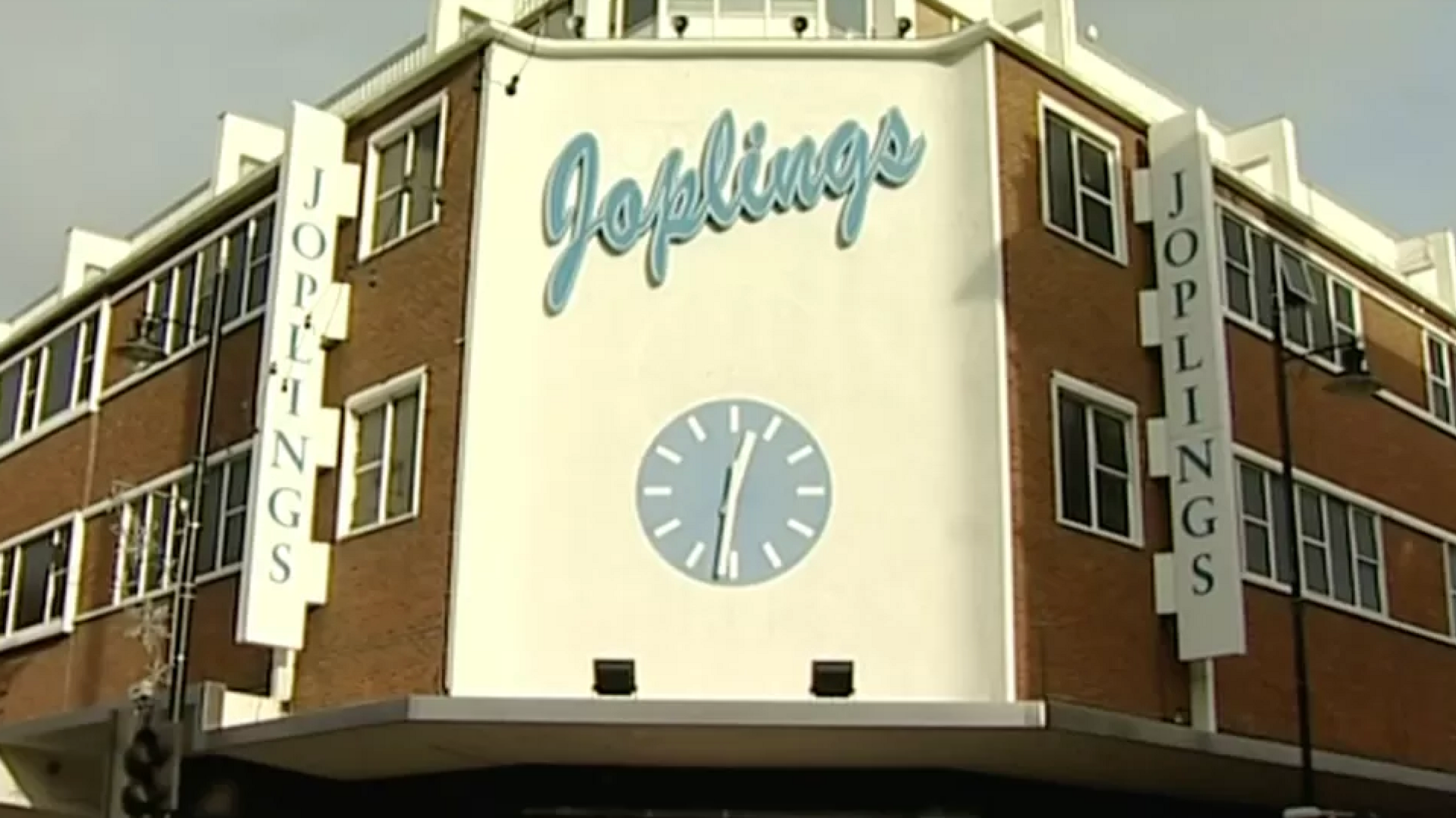
The former Joplings store was known for its large exterior clock
Labour's "dynamic city" portfolio holder Kevin Johnston said the council took "decisive action" to prevent the building from being repurposed into an asylum processing site.
He said the location was not appropriate and would have "turfed out students who called the building home".
He said he did not dispute the building requires work and confirmed a budget had been set aside for improvements to the exterior while proposals were being "worked up".
Hitting back at critics on the council, he said: “It is, frankly, laughable that Councillor Mullen is standing in front of this particular building – largely unchanged for years – and bemoaning a lack of investment, when his party were advancing plans that, I am sure, our residents would not have considered an appropriate use for the building.”
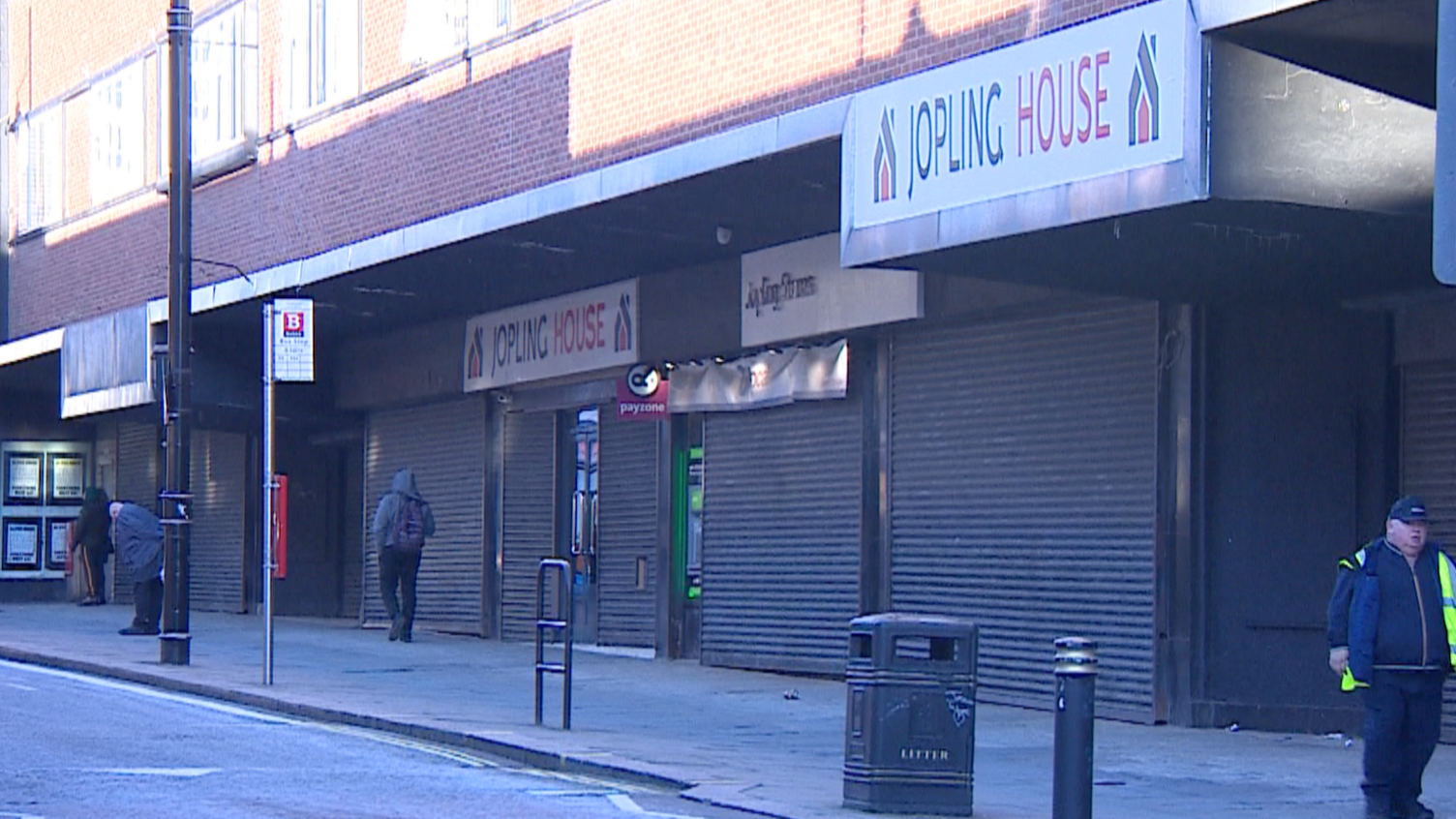
Locals say the ground floor is in need of redevelopment
Follow BBC Sunderland on X (formerly Twitter), external, Facebook, external and Instagram, external. Send your story ideas to northeastandcumbria@bbc.co.uk.
- Published11 July 2023
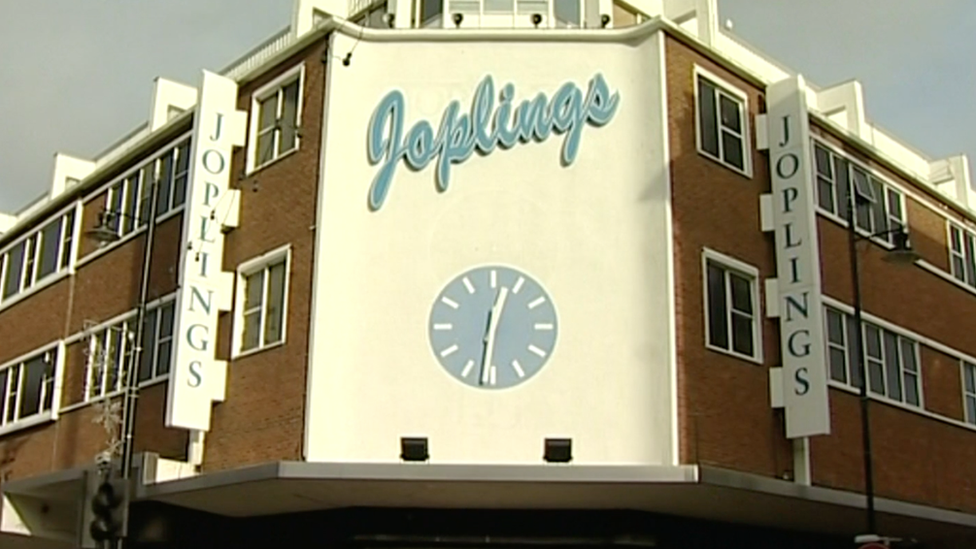
- Published20 June 2010
- Published16 June 2010